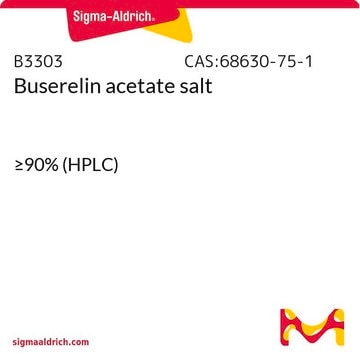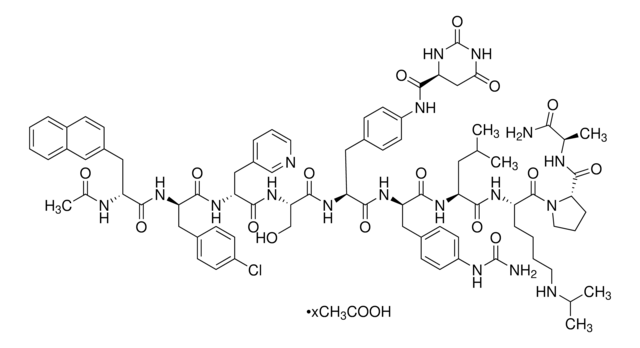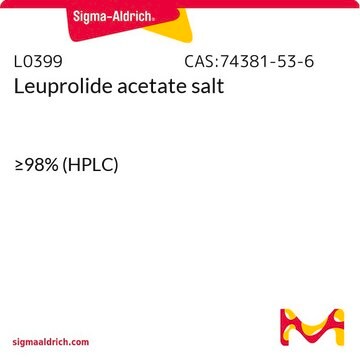SML2919
Abarelix acetate
Synonym(s):
N-Ac-D-Nal-4-Cl-D-Phe-D-Pal-Ser-N-Me-Tyr-D-Asn-Leu-Lys(iPr)-Pro-D-Ala-NH2, acetate salt, N-Ac-DNal-DCpa-DPal-Ser-Nα-Me-Tyr-DAsn-Leu-ILys-Pro-DAla-NH2, acetate salt, N-Acetyl-3-(2-naphthalenyl)-D-alanyl-4-chloro-D-phenylalanyl-3-(3-pyridinyl)-D-alanyl-L-seryl-N-methyl-L-tyrosyl-D-asparaginyl-L-leucyl-N6-(1-methylethyl)-L-lysyl-L-prolyl-D-alaninamide, acetate salt, PPI 149 acetate, PPI-149 acetate, PPI149 acetate, R 3827 acetate, R-3827 acetate, R3827 acetate
About This Item
Recommended Products
Biochem/physiol Actions
Signal Word
Warning
Hazard Statements
Precautionary Statements
Hazard Classifications
Repr. 2
Storage Class Code
11 - Combustible Solids
WGK
WGK 3
Flash Point(F)
Not applicable
Flash Point(C)
Not applicable
Choose from one of the most recent versions:
Certificates of Analysis (COA)
Sorry, we don't have COAs for this product available online at this time.
If you need assistance, please contact Customer Support.
Already Own This Product?
Find documentation for the products that you have recently purchased in the Document Library.
Our team of scientists has experience in all areas of research including Life Science, Material Science, Chemical Synthesis, Chromatography, Analytical and many others.
Contact Technical Service









